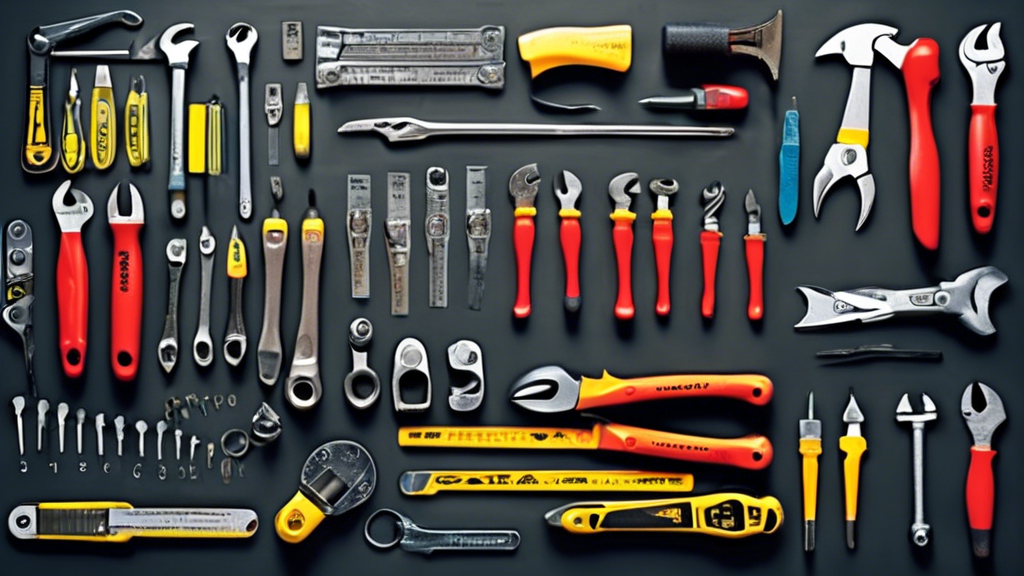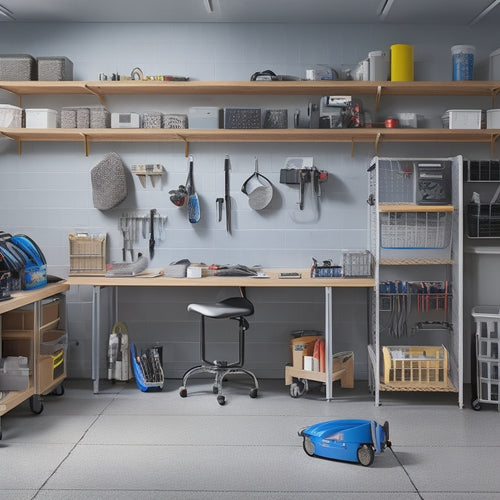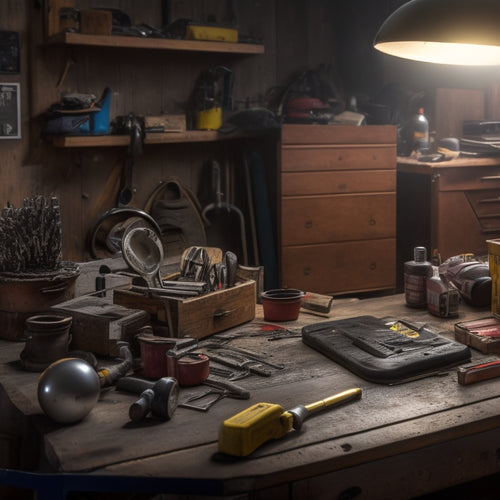
Pro Tips for Tool Set Maintenance
Share
Unlocking the Secrets to Tool Set Maintenance Like a Pro
Hey there, fellow DIY enthusiasts! If you're anything like me, you know the frustration of reaching for a trusty tool only to find it rusty, dull, or downright unusable. Fear not, for I'm here to share some pro tips on tool set maintenance to keep your tools in top shape for any project that comes your way.
Why is Tool Set Maintenance Important?
Before we dive into the nitty-gritty of maintenance techniques, let's talk about why it's crucial to keep your tools well-maintained. Think of your tools as loyal companions on your DIY journey. Just as you wouldn't neglect a friend, you shouldn't neglect your tools. Regular maintenance not only prolongs the lifespan of your tools but also ensures they perform at their best when you need them the most.
Cleaning and Rust Prevention
One of the key aspects of tool set maintenance is proper cleaning and rust prevention. Here are some simple yet effective tips to keep rust at bay:
- After each use, wipe down your tools with a clean, dry cloth to remove any dirt or moisture.
- For tough grime, use a mixture of water and mild soap to clean your tools, ensuring they are completely dry before storing them.
- Consider applying a light coat of oil to metal parts to prevent rust formation.
Sharpening and Calibration
Sharp and properly calibrated tools are essential for precise and efficient work. Here's how you can ensure your tools are always in top condition:
- Regularly sharpen cutting tools such as saws, chisels, and knives using appropriate sharpening tools.
- Check the calibration of measuring tools such as tape measures and levels to guarantee accuracy in your projects.
- Replace any worn-out or damaged parts to maintain the integrity of your tools.
Storage and Organization
Proper storage not only protects your tools from damage but also makes them easily accessible when you need them. Here are some tips for storing your tools:
- Invest in a toolbox or a pegboard to organize your tools and keep them off the floor.
- Use silica gel packs or rust inhibitor papers in your tool storage to control moisture levels.
- Store tools in their original cases or pouches to prevent scratches and dings.
A Personal Touch: My Tool Maintenance Journey
As a devoted DIYer, I vividly remember the frustration of using a dull saw during a crucial woodworking project. It was a wake-up call for me to prioritize tool maintenance. Since then, I've made it a habit to clean, sharpen, and store my tools meticulously. The result? Smoother cuts, accurate measurements, and a sense of pride in my well-maintained tool set.
Remember, taking care of your tools is not just a chore—it's a way to show appreciation for the companions that help bring your creative visions to life.
So, the next time you pick up your favorite wrench or hammer, take a moment to give it some love and care. Your future self will thank you when your tools are always ready to tackle any project with ease!
Related Posts
-

What Garage Organization Works for Limited Mobility?
You can create a garage organization system that works for you, even with limited mobility, by incorporating adaptabl...
-

3 Best Garage Business Productivity Apps for Iphone
You can take your garage business to the next level with three must-have iPhone apps. For inventory tracking, conside...

